PM reveals changes to AstraZeneca rollout amid blood clot concerns
Scott Morrison has announced major changes to the use of the AstraZeneca vaccine in Australia over blood clot concerns.
World
Don't miss out on the headlines from World. Followed categories will be added to My News.
Prime Minister Scott Morrison has accepted new medical advice that Australians under the age of 50 should preferably get the Pfizer COVID-19 vaccine after the AstraZeneca jab was linked to “rare but serious blood clots”.
At a late-night press conference in Canberra, Chief Medical Officer Paul Kelly said the Australian Technical Advisory Group (ATAGI) had advised younger Australians, who have not yet received the first dose of the AstraZeneca vaccine, should get the alternative jab: Pfizer.
“This is based both on the increased risk of complications from COVID-19 with increasing age, and thus increased benefit of the vaccination, and the potentially lower, but not zero risk, of this rare event with increasing age,” he said.
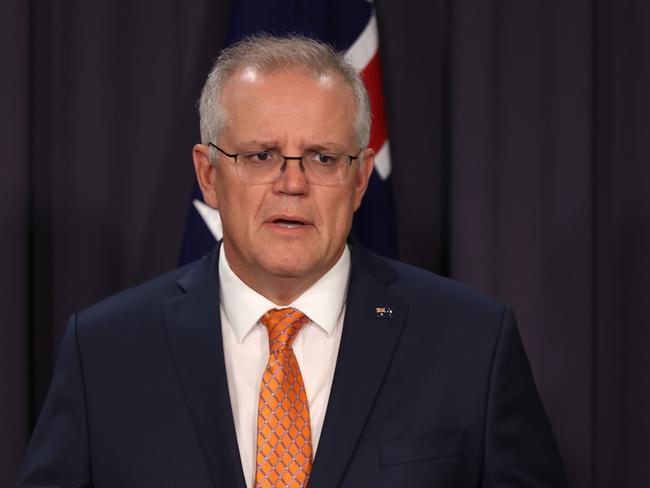
Australians aged over 50 will continue to receive the AstraZeneca vaccine, which the medics described “highly effective”.
“Immunisation providers should only give a first dose of AstraZeneca COVID-19 vaccine to adults under 50 years of age where benefit clearly outweighs the risk for that individual’s circumstances,” he said.
“People that have had their first dose of the COVID-19 AstraZeneca without any serious adverse events can safely be given their second dose. This includes adults under the age of 50, and people who have had blood clots associated with low platelet levels after their first dose of COVID-19 AstraZeneca should not be given the second dose.”
Department of Health Secretary Dr Brendan Murphy said the new advice would not impact the first phase of the vaccine rollout as it targets mostly older Australians.
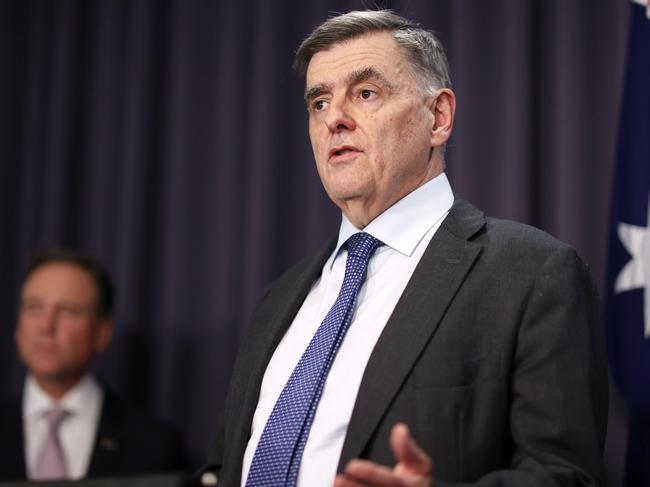
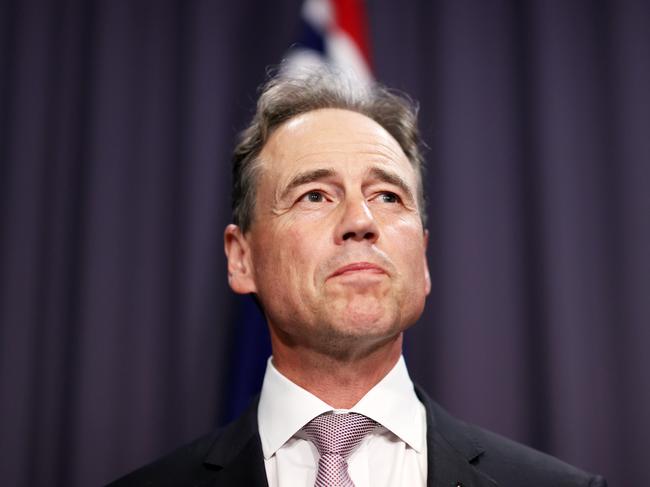
“For Phase one, which is vulnerable people, we will pretty much continue as we are. Those over 70 and 80 will continue to get AstraZeneca at their GPs and be confident in its efficacy and its safety,” he said.
“For those healthcare workers under 50, they will now be prioritised to Pfizer, and that might delay that particular phase of 1b. But that’s the only phase that might be delayed.”
The Department of Health is developing advisory resources to help healthcare workers and consumers understand the risks and benefits of the vaccines.
Dr Murphy said as the rollout moved onto younger Australians, the government will work to prioritise obtaining alternative vaccines.
“When we move into the broader, younger population later on, we will have to recalibrate by reprioritising some Pfizer for younger people, and we are now reviewing all of the vaccine purchases we’ve made,” he said.
“We have 51 million Novavax coming later in the year, we’re looking at when we can bring other vaccines forward.”
Experts with ATAGI and the TGA met today after it was decided AstraZeneca would not be given to people in Britain under 30, after a “plausible link” was found in extremely rare cases of blood clots.
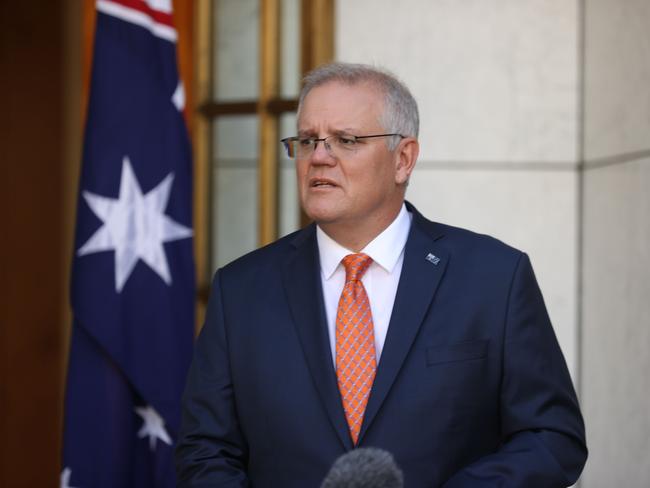
In the UK, the AstraZeneca vaccine will only be given to people aged 30 and over, following new advice from the UK’s Medicines and Healthcare products Regulatory Agency.
That age group will now be given the Pfizer-BioNTech or Moderna jabs.
The “vanishingly small” risk was enough to make a “course correction” in the UK, following 79 reports of blood clots among people who had received the AstraZeneca jab.
Of those, 19 people had died, including three who were under 30.
Germany has already restricted the AstraZeneca jab to those over 60, while Canada has suspended its use in those under 55. In France, doses are sitting in fridges as locals cancel appointments.
However, the European Medicines Agency (EMA) found that the “benefits of the vaccine continue to outweigh the risks.”
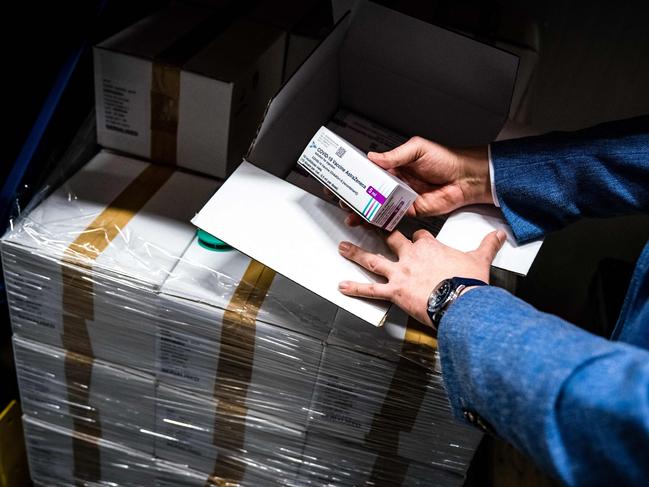
Britain, which has vaccinated more than 31 million people with a first dose of a jab, including 20 million AstraZeneca doses, insisted that the new advice would not delay its roll out.
The MHRA’s boss Dr June Raine said there was a “reasonably plausible” link between the cases of blood clots, which occurred about four times per million doses, and the AstraZeneca jab.
“The evidence has accrued not only in numbers and kinds of cases but the pattern of those cases,” she said.
England’s deputy chief medical officer Professor Jonathan Van-Tam said that the number of blood clot cases was “vanishingly small”.
“If you sail a massive liner across the Atlantic, then it’s not really reasonable that you aren’t going to have to make at least one course correction,” he said.
He added that the UK had a “number of horses in the race” for a vaccine rollout, with Moderna jabs being used in Wales from this week, while it was also waiting for the Johnson & Johnson vaccine in the British summer and the Novovax jab was being made in the north of England.
The EMA research found most of the cases of blood clots had occurred in women under 60 years of age.
The EMA advised people who had received the AstraZeneca jab to seek treatment if they had shortness of breath, chest pain, leg swelling, persistent abdominal pain, blurred vision or blood spots under the skin beyond the site of the injection.
British Prime Minister Boris Johnson said he would follow the advice of regulators.
‘PLAUSIBLE BUT NOT CONFIRMED’
The World Health Organisation’s vaccine experts echoed EMA’s findings, saying a causal relationship between the vaccine and blood clots was “plausible but is not confirmed”.
Canada, France, Germany and the Netherlands are among several countries that are not recommending the shot for younger people.
Britain urged people under 30 to use other vaccines besides AstraZeneca, after reporting 79 blood clots and 19 deaths among 20 million doses given. It did not say how many people had been given the AstraZeneca vaccine.
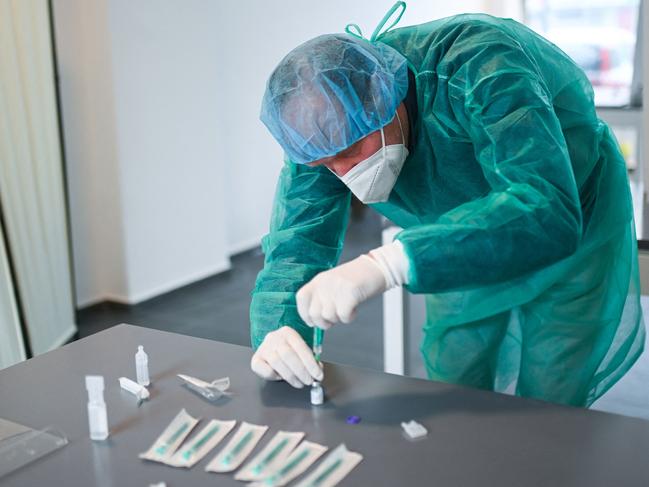
AstraZeneca’s vaccine has been administered in at least 111 countries, more than any of its rivals, according to AFP data. It is being used in wealthier countries and poor nations, largely as part of the Covax scheme to ensure equitable access to vaccines.
The controversy surrounding the jab has marred a global vaccine rollout that governments hope will help countries emerge from a pandemic that has ravaged the global economy and subjected much of humanity to some form of confinement.
In Germany, Chancellor Angela Merkel expressed support for a snap lockdown to stem rising cases, after decentralised measures failed to quell outbreaks.
Hard-hit France imposed tighter measures this week, while Ukraine on Wednesday (local time) reported record new deaths and hospitalisations after tightening measures in the capital.
“It is no exaggeration to describe the situation as critical,” said Kiev mayor Vitali Klitschko, warning that the city’s hospitals would run out of beds “very soon”.
India, which registered a 24-hour record of almost 116,000 new cases on Wednesday, said it too would rollout tougher curbs with new curfews in place in 20 cities, including the capital New Delhi.
More Coverage
Originally published as PM reveals changes to AstraZeneca rollout amid blood clot concerns




